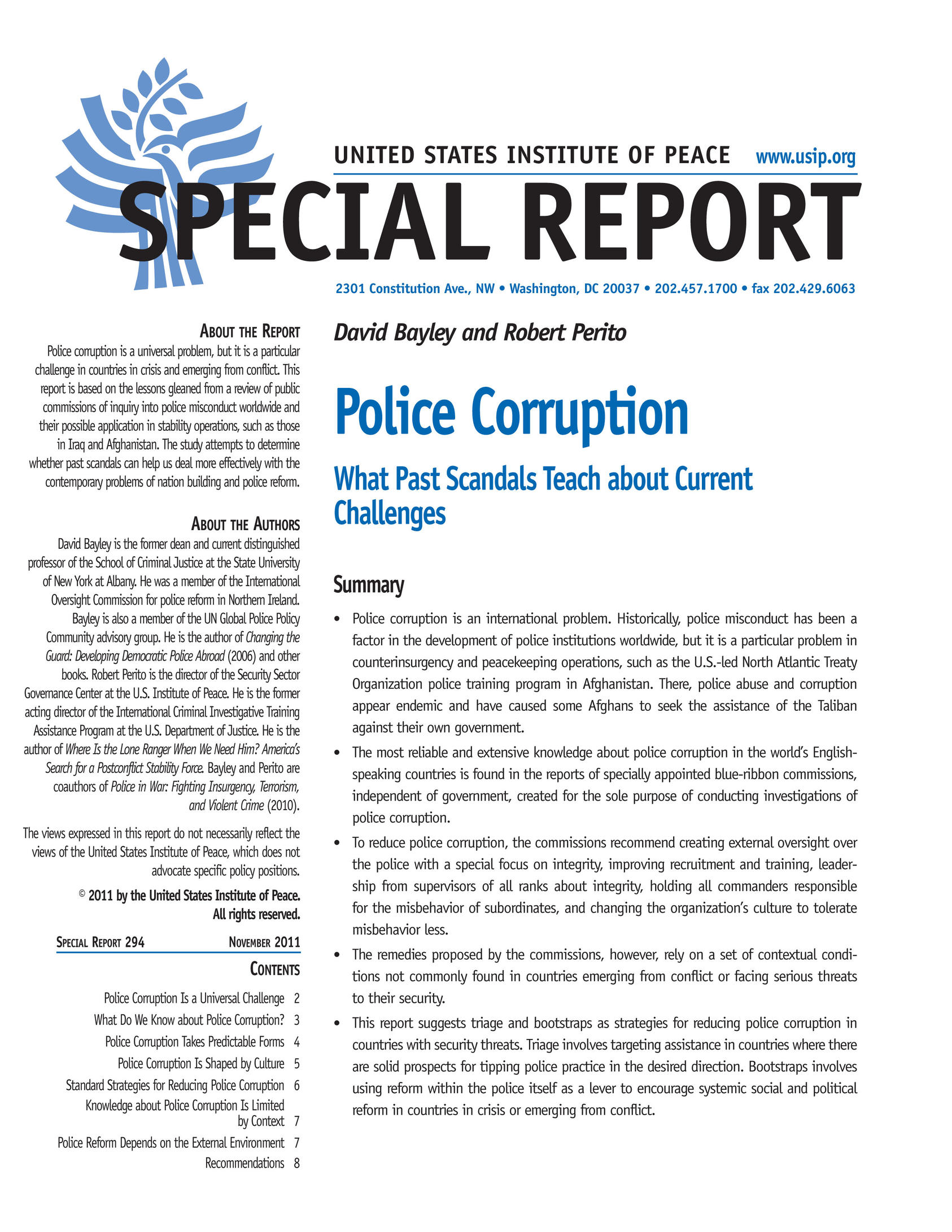Police corruption is a universal problem, but it is a particular challenge in countries in crisis and emerging from conflict. This report is based on the lessons gleaned from a review of public commissions of inquiry into police misconduct worldwide and their possible application in stability operations, such as those in Iraq and Afghanistan.

Summary
- Police corruption is an international problem. Historically, police misconduct has been a factor in the development of police institutions worldwide, but it is a particular problem in counterinsurgency and peacekeeping operations, such as the U.S.-led North Atlantic Treaty Organization police training program in Afghanistan. There, police abuse and corruption appear endemic and have caused some Afghans to seek the assistance of the Taliban against their own government.
- The most reliable and extensive knowledge about police corruption in the world’s English speaking countries is found in the reports of specially appointed blue-ribbon commissions, independent of government, created for the sole purpose of conducting investigations of police corruption.
- To reduce police corruption, the commissions recommend creating external oversight over the police with a special focus on integrity, improving recruitment and training, leadership from supervisors of all ranks about integrity, holding all commanders responsible for the misbehavior of subordinates, and changing the organization’s culture to tolerate misbehavior less.
- The remedies proposed by the commissions, however, rely on a set of contextual conditions not commonly found in countries emerging from conflict or facing serious threats to their security.
- This report suggests triage and bootstraps as strategies for reducing police corruption in countries with security threats. Triage involves targeting assistance in countries where there are solid prospects for tipping police practice in the desired direction. Bootstraps involves using reform within the police itself as a lever to encourage systemic social and political reform in countries in crisis or emerging from conflict.
About the Report
Police corruption is a universal problem, but it is a particular challenge in countries in crisis and emerging from conflict. This report is based on the lessons gleaned from a review of public commissions of inquiry into police misconduct worldwide and their possible application in stability operations, such as those in Iraq and Afghanistan. The study attempts to determine whether past scandals can help us deal more effectively with the contemporary problems of nation building and police reform.
About the Authors
David Bayley is the former dean and current distinguished professor of the School of Criminal Justice at the State University of New York at Albany. He was a member of the International Oversight Commission for police reform in Northern Ireland. Bayley is also a member of the UN Global Police Policy Community advisory group. He is the author of Changing the Guard: Developing Democratic Police Abroad (2006) and other books.
Robert Perito is the director of the Security Sector Governance Center at the U.S. Institute of Peace. He is the former acting director of the International Criminal Investigative Training Assistance Program at the U.S. Department of Justice. He is the author of Where Is the Lone Ranger When We Need Him? America’s Search for a Postconflict Stability Force. Bayley and Perito are coauthors of Police in War: Fighting Insurgency, Terrorism, and Violent Crime (2010).
The views expressed in this report do not necessarily reflect the views of the United States Institute of Peace, which does not advocate specific policy positions.